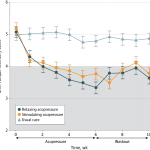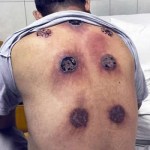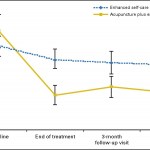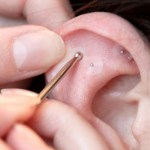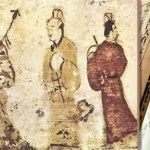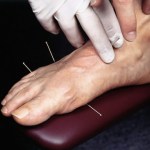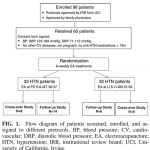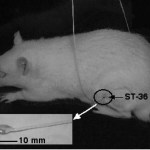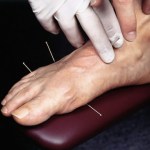acupuncture
Given the study that I’m going to discuss, I can’t help but start out with a brief (for me) reminiscence. Longtime readers know that I graduated from the University of Michigan Medical School in the late 1980s. Back when I attended U. of M., its medical school was considered stodgy and hard core even by 1980s standards. No organ systems approach to education for U. of M.! Oh, no. It didn’t matter that the organ systems approach, in which all classes are organized by organ systems and teach the same organ systems at roughly the same time (e.g., biochemistry teaching the biochemistry of the…
There are so many ridiculous alternative medicine treatments being “integrated” via “integrative” medicine into medicine, no matter how ridiculous they are, that it’s not only hard to believe, but it’s hard to keep track. Homeopathy is, of course, the most ridiculous, although “energy medicine” definitely gives homeopathy a run for its money in the Department of Stupid. The depressing thing is that most physicians, even “integrative medicine” physicians, know that homeopathy is bunk (at least when they even know what homeopathy is—most think it’s just herbal medicine). However, those same…
Arguably, one of the most popular forms of so-called "complementary and alternative medicine" (CAM) being "integrated" with real medicine by those who label their specialty "integrative medicine" is acupuncture. It's particularly popular in academic medical centers as a subject of what I like to refer to as "quackademic medicine"; that is, the study of pseudoscience and quackery as though it were real medicine. Consider this. It's very difficult to find academic medical centers that will proclaim that they offer, for example, The One Quackery To Rule Them All (homeopathy). True, a lot of…
Of all the forms of quackery that have been “integrated” into medicine of late, arguably one of the most popular is acupuncture. It’s offered in fertility clinics. It’s offered in hospitals and medical clinics all over the place. The vast majority of academic medical centers that have embraced quackademic medicine offer acupuncture. (Quackademic medicine, for those not familiar with the term we reserve for the study of alternative medicine in academic medical centers that really should recognize it as quackery.) Hell, quite a few that haven’t embraced quackademic medicine offer acupuncture.…
Acupuncture is quackery.
As with naturopathy (a medical pseudo-"specialty" that embraces acupuncture and other so-called traditional Chinese medicine), when I write about acupuncture I like to start out with a provocative statement, a statement of—dare I say it?—judgment in order to shock new readers and let them know exactly where I'm coming from. Why I consider acupuncture to be quackery now, after years of not being sure, is simple and well documented in many posts on this blog. (Just type "acupuncture" into the search box if you don't believe me; here's an example.) Basically, I started…
Several years ago, Harriet Hall coined a term that is most apt: Tooth fairy science. The term refers to clinical trials and basic science performed on fantasy. More specifically, it refers to doing research on a phenomenon before it has been scientifically established that the phenomenon exists. Harriet put it this way:
You could measure how much money the Tooth Fairy leaves under the pillow, whether she leaves more cash for the first or last tooth, whether the payoff is greater if you leave the tooth in a plastic baggie versus wrapped in Kleenex. You can get all kinds of good data that is…
Et tu, Scientific American?
A few of you seem to know what will catch my attention and push my buttons, because over the past couple of days a few of you sent me an article published in Scientific America by an internal medicine resident named Allison Bond entitled Sometimes It's Okay to Give Patients a Treatment with No Proved Medical Benefits. Yes, a title like that is akin to waving the proverbial cape in front of a bull. Of course, I doubt that Bond herself came up with that title; editors usually come up with such titles. Still, the title is a fairly accurate summation of what is being…
When I wrote about YouYou Tu, the Chinese scientist who won the Nobel Prize in Physiology or Medicine for her successful identification, isolation, purification, and validation of Artemisinin, an antimalarial medication that was quite effective. It was also derived from an herbal remedy used in traditional Chinese medicine (TCM), which has led a fair number of TCM advocates to portray this Nobel Prize as a "validation" or "vindication" of TCM. It wasn't. Nor was it a validation of naturopathy or herbalism, as has been claimed. It was a validation of the good, old-fashioned science-based…
Last week, in response to the awarding of the Nobel Prize in Physiology or Medicine to Chinese scientist Youyou Tu, who isolated Artemisinin and validated it as a useful treatment for malaria back in the 1970s, I pointed out that the discovery was a triumph of natural products pharmacology, not of traditional Chinese medicine (TCM). So did Scott Gavura, a pharmacist who blogs at my favorite other blog, Science-Based Medicine, who also emphasized that the path from TCM remedy for fever to pill used to treat malaria was the very model of how pharmacologists isolate medicines from plants.…
I've spent a lot of time in Cleveland. Indeed, I lived there for eight years in the late 1980s and early 1990s, during which time I completed my surgery residency training, completed my PhD, and, even more importantly, met and married my wife. Even though I haven't lived there for nearly 20 years—I can't believe it's been that long—I still have an affinity for the city, which is perhaps why I've had a tendency to come down hard on venerable Cleveland medical institutions that turn to quackademic medicine, one where I trained (I'm talking to you, University Hospitals of Cleveland) and one…
I didn't think I'd be writing about acupuncture again so soon after deconstructing another "bait and switch" acupuncture study less than a week ago. True, the quackery that is acupuncture and the seemingly unending varieties of low quality studies published to make it seem as though there is anything more than nonspecific placebo effects invoked by sticking needles into the skin against an even more unending variety of diseases, conditions, and complaints. Basically, according to its adherents, acupuncture can treat almost anything. Particularly galling to me as a cancer surgeon is the…
It's always disappointing to see a good journal fall for bad medicine, particularly when it's in your field. For example, the Journal of Clinical Oncology (affectionately referred to by its abbreviation JCO) is the official journal of the American Society of Clinical Oncology (ASCO) and probably the most read clinical journal by those involved in the clinical care of cancer patients. Just as most oncologists, surgeons, and radiation oncologists who specialize in the care of cancer patients belong to ASCO, most of them also at least peruse JCO on a regular basis because major results of large…
Acupuncture is a theatrical placebo, but it's hard not to grudgingly admire just how—shall we say?—malleable or adaptable a placebo it is. What I mean by this is that, if you believe its practitioners and adherents, acupuncture can treat almost literally any disease or health problem. Any! Pain? Acupuncture. Allergies? Acupuncture. Biliary colic? Acupuncture. Infertility? Acupuncture. Menstrual problems? Acupuncture. Prostate problems? Acupuncture. Asthma? Acupuncture.
Well, maybe not asthma, but that doesn't stop acupuncturists from claiming that acupuncture can treat it.
Oh, and if you're a…
I frequently discuss a disturbing phenomenon known as "quackademic medicine." Basically, quackademic medicine is a phenomenon that has taken hold over the last two decades in medical academia in which once ostensibly science-based medical schools and academic medical centers embrace quackery. This embrace was once called "complementary and alternative medicine" (CAM) but among quackademics the preferred term is now "integrative medicine." Of course, when looked at objectively, integrative medicine is far more a brand than a specialty. Specifically, it's a combination of rebranding some…
Back when I started this blog, I hadn't yet become aware of the phenomenon known as quackademic medicine. This phenomenon, as you recall, is the infiltration of academic medical institutions that should be bastions of science- and evidence-based medicine by outright quackery. In quackademic medicine, we see Very Respectable Academic Physicians and Scientists wasting their time studying faith healing like healing touch and reiki, prescientific medicine based on primitive vitalism such as traditional Chinese medicine and (of course) acupuncture, and even sympathetic magic like homeopathy. It's…
I sometimes catch flak for repeating this, but there was a time when I thought there might be something to acupuncture. I don't care, because, as a blogger, when I write a post I assume that a significant fraction of people reading it have never seen this blog before and therefore aren't even the least bit familiar with what I've written before on the subject. That makes them a blank slate, as far as this blog is concerned, and obliges me to explain everything. That time was about nine or ten years ago, and my rationale was, not surprisingly, that, unlike many other alternative medicine…
Sometimes, I think advocates of "integrative" medicine are trolling me. Of course, unlike antivaccine advocates, I realize it (usually) isn't about me at all and they're just writing what they believe and have (usually in the vast majority of cases) never encountered me and (usually in the vast majority of cases) aren't considering me at all. Even so, it's hard, when coming across an article like The Power of Integrative Medicine When All Else Fails by Emma M. Seppälä over on Psychology Today, not to think that I'm being trolled, so blatant are the alternative medicine propaganda and apologia…
The overarching goal that proponents of so-called "complementary and alternative medicine" (CAM) or, as is becoming the preferred term, "integrative" medicine is the mainstreaming of the "unconventional" treatments that fall under the rubric of these two terms. Indeed, that's the very reason why they so insisted on the shift from calling it CAM to calling it "integrative medicine." Not being content with the subsidiary status as not quite "real" medicine" that the words "complementary" and "alternative" imply, they want their woo to be seen as full co-equals with scientific medicine, hence…
When it comes to the use of what is sometimes called "complementary and alternative medicine" (CAM) or, increasingly, "integrative medicine," there is a certain narrative. It's a narrative promoted by CAM proponents that does its best to convince the public that there is nothing unusual, untoward, or odd about CAM use, even though much of CAM consists of treatments that are based on prescientific concepts of human physiology and pathology, such as traditional Chinese medicine or homeopathy. In other words, it's a narrative designed to "normalize" CAM usage (and therefore CAM practice), making…
As hard as it is to believe, there was once a time when I didn't think that acupuncture was quackery, an ancient "Eastern" treatment that "evolved" from bloodletting not unlike bloodletting in ancient "Western" bloodletting. This time was, hard as it is to believe, less than eight years ago, right around the time just before I got involved with my not-so-super-secret other blog. I figured that, because acupuncture involves sticking needles into the body, maybe there might be something to it. That doesn't mean that I thought that there was something to it, only that back then I was a lot more…
